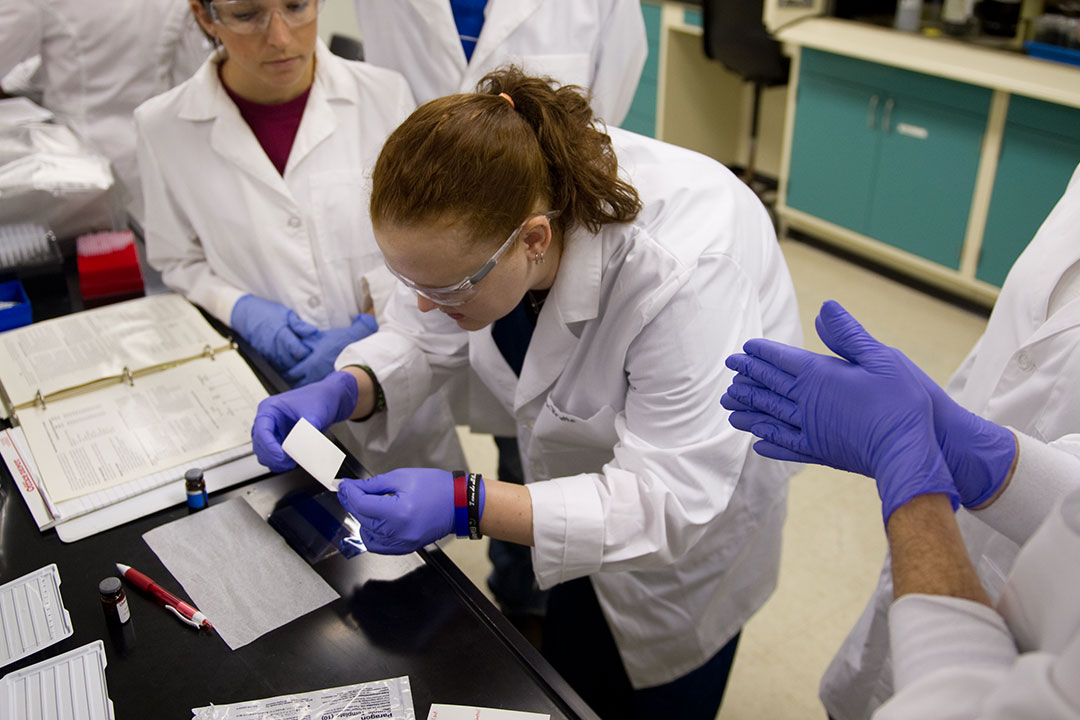Pre-Physician Assistant
Pre-Physician Assistant
As you become a physician assistant, you will examine, diagnose, and treat patients with the approval of a doctor. Depending on your specialty, physician assistants may work in all areas of medicine, including primary care and family medicine, emergency medicine, surgery, and psychiatry.
Why Consider Physician Assistant?
You'll be an integral member of the healthcare team and provide many of the same services as a primary care physician. If you want to work in medicine, but becoming a doctor isn't the right path for you, consider a career as a physician assistant instead.
According to the U.S. Bureau of Labor Statistics, it is one of the highest-paid, most in-demand jobs in the U.S.; employment of physician assistants is projected to grow 31 percent from 2019 to 2029, much faster than the average for all occupations.
Explore: Physician Assistant Pathways
Become a student at USM and obtain the necessary science or non-science requirements to apply to a Physician Assistant program, with the guidance of our pathways expert!
| Undergraduate Credit Required | Bachelor’s degree |
| Entrance Exam | MCAT, GRE, or PA-CAT |
| Professional Schooling Required | 3 years of professional school; Master of Physician Assistant Studies |
| Professional Organization Websites | American Academy of Physician Assistants, Physician Assistant Education Association |
Here are some of the local or surrounding area professional schools:
- The University of Southern Mississippi (Gulf Park Campus)
- Mississippi College (Clinton, MS)
- Mississippi State University (Meridian, MS)
- Louisiana State University (New Orleans, LA)
- University of Alabama at Birmingham (Birmingham, AL)
- University of South Alabama (Mobile, AL)
- Program Directory
Navigating the Application Process
Beginning early with the application process allows students to structure an academic plan of study. Physical assistant programs do not admit based on course prerequisites and GPA alone. Most programs also have a series of additional requirements, including competitive scores in the MCAT, GRE (Graduate Record Examinations), or PA-CAT and high GPA (overall and prerequisite), providing evidence of care for people through service and shadowing experiences, leadership roles, and more!
We encourage you to contact our pathways expert to support you in your professional development endeavors.
Some students already have a B.A. or B.S. and then decide to pursue becoming a physician assistant. Students in this category should consult with our pre-professional office. In general, these students lack some of the science courses required by most PA schools. In some cases, the required courses may be over 10 years old, which most PA schools do not accept. It is common for these students to take the prerequisite science or non-science courses for PA school at USM as post-baccalaureate students while also working on polishing their applications and taking the MCAT, GRE, or PA-CAT.
Some post-baccalaureate students take the prerequisite courses as a non-degree student while other students choose a second major to pursue at USM. In either case, students must go through the University Admissions Office to be admitted (or re-admitted for former students) before enrolling in courses.
The following list of prerequisite courses meet only the minimum requirements of the Southern Miss PA Program.
- Anatomy and Physiology – BSC 250/L & BSC 251/L
- Microbiology – BSC 282/L*
- General Chemistry – CHE 106/L & CHE 107/L
- Organic Chemistry – CHE 255/L
- Genetics – BSC 370*
- Statistics – PSY 360 or other statistics course
- Medical Terminology – MLS 201
*General Biology I - BSC 110/L & General Biology II - BSC 111/L are pre-requisites for all upper-level biology courses.
Students interested in pursuing a PA program should remember to check with their desired schools for their specific requirements.
The typical admissions requirements for PA school are as follows:
- A minimum of two years of undergraduate study (though a bachelor's is usually preferred even if not required)
- A minimum overall GPA of 3.0 (with competitive applicants generally sitting at approximately 3.5)
- Completion of prerequisite coursework with a grade of C or higher
- GRE, MCAT, or PA-CAT scores
- Three letters of recommendation
- Approximately 1,000 hours of direct patient care experience, with supplemental shadowing hours
- A successful background check
- The ability to meet each program's technical standards
What Should I Major In?
The “pre-physician assistant curriculum” is just a list of courses that are required for admission to PA school. It is NOT an academic major, a minor, or an emphasis area. Prerequisite courses can vary between PA schools, so it is important to check with individual schools about their requirements and deadlines.
Physician Assistant schools do not require a particular major—pursue a major in which you feel the most comfortable with! Explore related majors:

